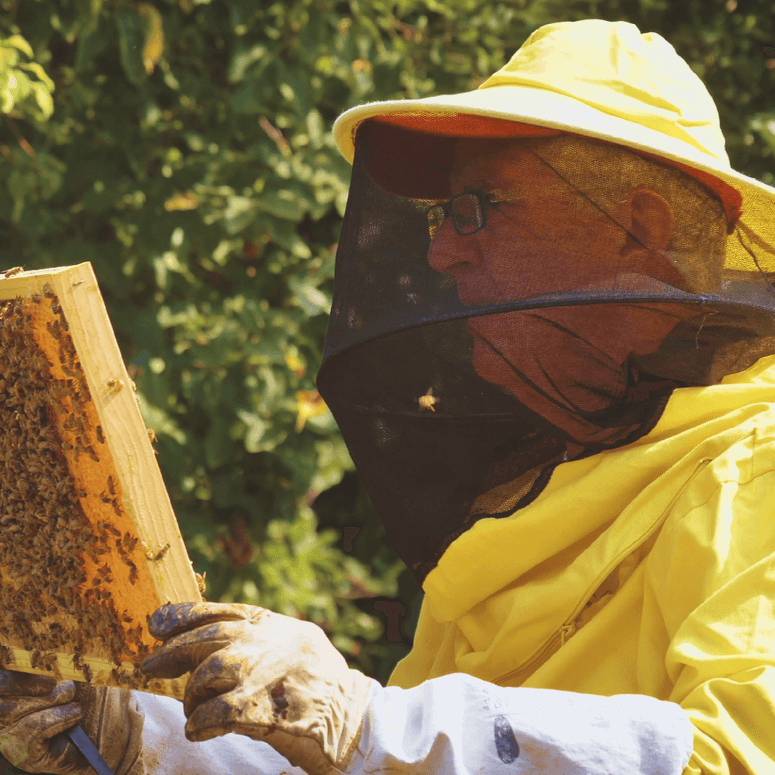Transforming agriculture in South Africa: AgriSound’s role in revolutionising pollination practices
We’ve made sure we’re in the best position to lead the charge in agricultural change by using our tech to monitor bees, and we’re setting out to do it on a global scale.

If we said that we believe that the future of agriculture lies in bringing the care and optimisation of pollinators right to the fore, we’d not be alone. Many others feel the same way we do, with our Polly AI bioacoustic listening devices making huge changes to the agricultural practices of national farmers like Tesco and M&S. We’ve made sure we’re in the best position to lead the charge in agricultural change by using our tech to monitor bees, and we’re setting out to do it on a global scale.
That’s why we’ve been really excited to be playing a pivotal role in a groundbreaking project aimed at revolutionising agricultural practices in South Africa with a version of our tech. By leveraging our cutting-edge sensor technologies alongside other innovative approaches, we’re not only helping South African agriculturalists enhance commercial beekeeping but also transforming the way agriculture relies on pollinators for success. Beekeeping contributed $16B (ZAR) to the South African economy in 2016 and provided 180,000 jobs.
The challenge
The South African beekeeping industry plays a crucial role in the economy, contributing significantly through honey production, pollination services, and enhanced natural capital. However, like any industry, it faces challenges, including sub-optimal pollination, biodiversity loss, and productivity issues. These challenges underscore the urgent need for innovative solutions to ensure the sustainability and prosperity of beekeeping in South Africa.
The project
Our project focuses on introducing in-hive sensor technology to provide real-time decision support for beekeepers. Through collaboration with partners:
- Crop Health and Protection (CHAP), a UK Government funded Agri-Tech Innovation Centre,
- CropImpi, a South Africa-based R&D organisation.
we’re harnessing the power of data to address key challenges faced by beekeepers across the country. The pilot is supported by the Frontier Tech Hub, an initiative funded by UK Aid from the Foreign, Commonwealth and Development Office (FCDO), and has involved working closely with the Science and Innovation Network team in South Africa.
Participants in the project represented diverse backgrounds and sectors, highlighting the broad impact of our efforts. From commercial beekeepers to hobbyists, our technology empowered beekeepers to make evidence-led decisions, leading to increased productivity and efficiency.
The outcome
Outputs from Sprints 1 and 2 have been essential in formulating our approach to our third and final sprint. During the project’s third and final sprint, we gathered data from beekeepers in KwaSulu Natal and the Western Cape, leveraging 200 deployed devices to assess functionality, value gained, and end-user behaviour. The results were nothing short of transformative.
The data revealed that the in-hive devices enabled beekeepers to take corrective actions, such as temperature and humidity control, leading to improved hive health and honey harvests. Additionally, participants expressed a strong desire to continue using the technology beyond the trial period, indicating its value and potential for widespread adoption.
A total of 43% overall participants took corrective actions thanks to the in-hive device usage. The types of corrective actions taken included:
- (a) temperature control (e.g., moving the hive into the sun/shade/removing super).
- (b) humidity control (e.g., tilting hive to remove excess water).
- (c) introduction of a new queen (e.g., following the identification of severe temperature fluctuation of hive).
- (d) Honey harvest (e.g., stable temperature recorded indicating the box was full and ready to harvest).
- (e) Preventing splitting of hive by addition of super (e.g., due to lack of space in the hive thus inducing swarming).
- (f) Where no corrective actions were taken, this was due to: no action required; difficulty in understanding data; mobility/disability challenges; and connectivity issues.
The needs and priorities identified by beekeepers included theft protection/identification (23%), opportunity to learn more about their hives (33%), early/remote detection of issues (16%), opportunity to save money/time/fuel to visit hives (10%) and reduce swarming (10%).
What this means
One of the most exciting aspects of the project is the opportunity to make in-hive devices accessible to underserved groups in South Africa. By exploring various business models and cost structures, the project is working to ensure that beekeeping technology is available to all, regardless of background or experience.
While challenges remain, such as affordability and scalability, we’re optimistic about the future of pollinator management for agriculture and beekeeping in South Africa. By leveraging partnerships, innovative financing models for larger scale initiatives, and the support of government agencies and NGOs, we’re confident these obstacles can be overcome and an even more thriving commercial pollination and beekeeping industry that benefits both beekeepers and agricultural ecosystems can be sustained.
Looking ahead, AgriSound is looking to build on the success of this project by exploring new opportunities to help further enhance commercial pollinator practices in South Africa. It is something so fundamental to helping transform and improve agricultural practises, how could we not be? Without optimal pollinator care you can’t truly have the optimal pollination – the two go hand in hand. By combining in-hive sensors with smart bioacoustics, we aim to further optimise pollination strategies and drive sustainable agricultural growth across the country, just as we do elsewhere, enabling increased crop yield and reduced production costs.
What we do
We are proud to be at the forefront of transforming agriculture in South Africa and around the world. Through our innovative approach to pollinator management technology, we’re not only helping to revolutionise pollination practices but also laying the foundation for a more sustainable and prosperous future for beekeepers and farmers alike.
Globally we’re working with food and drink companies like AB InBev, Tesco, M&S and Innocent Drinks seeing benefits in their orchards and fields. If you think you could benefit from our tech, find out more about what we do.
